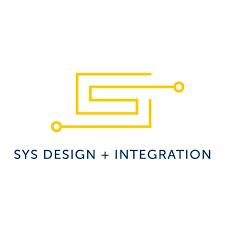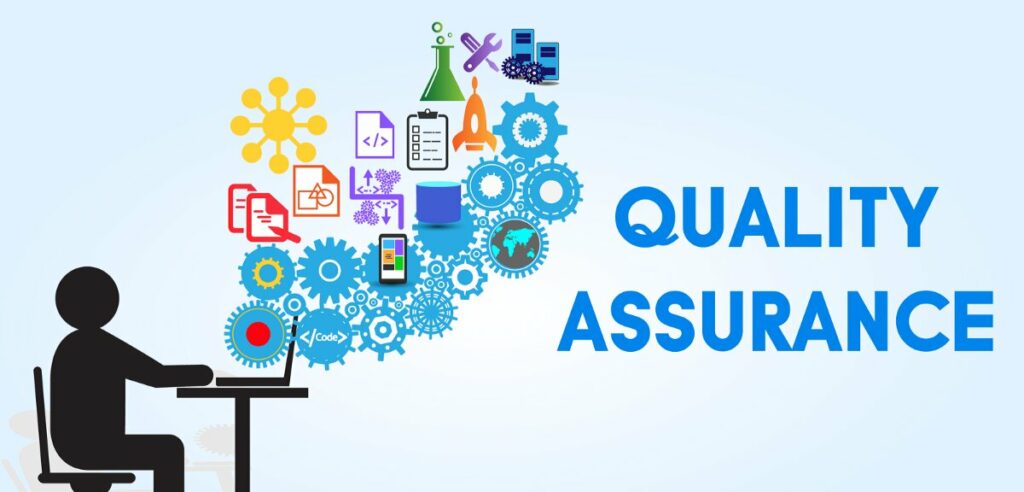Everything You Need To Know About A Technical Business Analyst
In today’s rapidly evolving business environment, the role of a Technical Business Analyst is becoming increasingly critical.
With digital transformation at the forefront of business strategies, organizations seek professionals who not only understand business requirements but also have a deep understanding of technology.
Here’s a comprehensive guide to the role, skills, and importance of a Technical Business Analyst.
What is a Technical Business Analyst?

A Technical Business Analyst sits at the intersection of business needs and technology solutions. Unlike a traditional business analyst who focuses mainly on the business side of things.
A Technical Business Analyst delves into the technical nuances that come with software development, data analysis, and system integration among other IT solutions.
They are proficient in translating business needs into technical requirements, bridging the gap between the business stakeholders and the IT department.
Key Responsibilities of a Technical Business Analyst
Requirement Gathering: The Crucial Role of the Technical Business Analyst
In the diverse landscape of modern businesses, the role of a Technical Business Analyst is evolving to be more crucial than ever.
While requirement gathering is a common task for all business analysts, the Technical Business Analyst brings a unique blend of business acumen and technological expertise to this essential phase.
They are well-versed in pinpointing not just the “what” but also the “how” of business needs, providing a critical technological perspective.
The Two Types of Requirements
When it comes to requirement gathering, the Technical Business Analyst focuses on two primary types: functional and non-functional requirements.
- Functional Requirements: These are the essential features and functionalities that a system must possess to meet its business objectives. For example, in an e-commerce platform, a functional requirement could be the capability for users to browse through a catalogue and add items to a shopping cart.
- Non-Functional Requirements: These pertain to how well the system performs its functions rather than what functions it performs. For instance, speed, security, and scalability are non-functional requirements.
Technical Perspective: A Unique Edge
What sets a Technical Business Analyst apart is their ability to view these requirements through a technological lens. When collecting functional requirements, they not only understand what the business needs but also consider the technical feasibility and the best way to implement these requirements.
Likewise, when identifying non-functional requirements, they are adept at translating these into technical specifications, such as required database indexing for speed or encryption protocols for security.
Real-World Example
To put this into a real-world context, consider the development of a mobile application for a healthcare provider.
A regular business analyst might gather requirements like secure login, patient record access, and appointment scheduling as the functional requirements.
However, a Technical Business Analyst would go a step further. They would consider the technological implications of these needs.
For secure login, they might recommend two-factor authentication and specify the technologies best suited for this.
For patient record access, they could delve into how to securely fetch data from a server in a way that complies with healthcare regulations like HIPAA.
In essence, the Technical Business Analyst acts as a bridge between the business and technology teams.
By gathering requirements with a technological perspective, they ensure that the development team doesn’t just know what needs to be built but also gains insights into how it should be built to meet both business needs and technical constraints.
The work of the Technical Business Analyst during the requirement gathering phase is critical for the project’s success. Their insights ensure that no detail is lost in translation from the business side to the technical side.
They help in aligning the project deliverables closely with organizational objectives while also setting up the technical team for success by providing clear, actionable, and technically-relevant requirements.
In the complex, ever-changing landscape of today’s business environment, the role of the Technical Business Analyst in requirement gathering cannot be overstated.
They bring a depth of understanding that goes beyond traditional business analysis, adding layers of technical insight that can be crucial for the successful delivery of projects.
Data Analysis

In the contemporary business ecosystem, data-driven decision-making is more important than ever. Here, the Technical Business Analyst plays a pivotal role.
One of the key aspects of their job is data analysis, an area that provides vital support for strategic business decisions, identifies optimization opportunities, and uncovers potential areas for innovation or improvement.
This is where the “technical” in Technical Business Analyst truly comes to the fore.
A Technical Business Analyst doesn’t merely skim through spreadsheets or basic statistics; they go much deeper.
Utilizing advanced tools and programming languages like SQL for database querying, Python for data manipulation and analysis, or R for statistical computing, they can sift through massive datasets to derive meaningful insights.
These insights could be related to customer behaviour, business processes, or even market trends, and they often lead to actionable recommendations that can significantly impact the business in a positive manner.
The skills required for this kind of data analysis are not commonly found in traditional business analysts.
A Technical Business Analyst combines the best of both worlds: business acumen to understand what the data means in a broader organizational context, and technical skills to manipulate and interpret the data effectively.
This blend of skills allows them to collaborate effectively with both business and technical teams, acting as a bridge that translates raw data into strategic business insights.
By employing data analysis, a Technical Business Analyst not only contributes to more informed decision-making but also helps the business stay agile and competitive in a rapidly evolving marketplace.
Their expertise in data analysis ensures that businesses are not just collecting data, but are also deriving value from it.
System Design and Integration

In today’s complex and interconnected business environment, system design and integration are crucial factors for organizational success.
A Technical Business Analyst is uniquely positioned to play an indispensable role in this domain. Unlike traditional business analysts, they have an in-depth understanding of technological components and the technical expertise to see how they fit into the larger business picture.
A Technical Business Analyst not only identifies business needs and requirements but also understands the intricacies of how different software and hardware components can be orchestrated to meet those needs.
Their involvement starts right from the design phase, where they work alongside architects and developers to create system designs that are not only technologically sound but also aligned with business objectives.
They can identify potential bottlenecks, suggest optimal tech solutions, and forecast how the new system will impact the existing one, ensuring seamless integration.
The role extends beyond initial design into the integration phase. Here, the Technical Business Analyst becomes a bridge between business executives and tech teams, ensuring that both sides understand the implications of integration.
They oversee the integration of new technologies into existing systems, safeguarding against conflicts and incompatibilities that could otherwise prove costly.
In summary, a Technical Business Analyst offers a rare blend of technical acumen and business understanding, making them a vital asset in the system design and integration phases.
Their involvement helps ensure that technology investments provide maximum value and perfectly align with business goals.
Quality Assurance

In the realm of software development, quality assurance (QA) is a critical component that ensures the final product meets the desired standards and functionalities.
The Technical Business Analyst often plays an integral role in the QA process, serving as the link between business requirements and technical execution.
Unlike a traditional business analyst, the Technical Business Analyst brings a technology-focused lens to QA, contributing to the formulation of test cases that not only address business needs but also account for technical requirements and constraints.
By collaborating closely with the QA team, the Technical Business Analyst helps design test scenarios that rigorously assess both functional and non-functional aspects of the software.
Whether it’s validating results against expected outcomes or digging deeper into performance testing to evaluate system responsiveness and stability, their input is valuable.
The Technical Business Analyst may also be involved in reviewing the results of automated tests, interpreting data to make informed decisions that drive improvements, and ensuring that the software aligns closely with both business goals and technical specifications.
In this capacity, the Technical Business Analyst acts as a guardian of quality, making sure that the software not only meets but often exceeds the standards and expectations set by the business and its stakeholders.
Technical Documentation

The documentation part is vital in making sure everyone stays on the same page. From system documentation to technical user guides, these analysts ensure that both the IT team and business stakeholders understand the technical aspects of a project.
Skills Required
1. Technological Proficiency
It should come as no surprise that a Technical Business Analyst must be tech-savvy. Whether it’s understanding code, being familiar with database management systems, or knowing the ins and outs of networking, a broad understanding of technology is imperative.
2. Business Acumen
Technical skills alone aren’t sufficient. A strong grasp of business operations, market dynamics, and customer needs is equally essential.
3. Analytical Thinking
The ability to analyse complex data and technical setups to come up with actionable insights is crucial.
4. Communication Skills
Excellent verbal and written communication skills are essential as the Technical Business Analyst acts as a liaison between business executives and IT professionals.
5. Project Management
A good understanding of project management methodologies like Agile or Waterfall is often required as they need to work in tandem with project managers.
The Importance of a Technical Business Analyst in Organizations
Bridging Gaps
One of the most important functions of a Technical Business Analyst is to act as a bridge between business needs and technical solutions. They bring a balanced perspective that caters to both ends efficiently.
Innovation and Optimization
Their unique vantage point allows them to see opportunities for innovation and optimization that others might miss. This capability to innovate while aligning with business strategy sets them apart.
Cost-Effectiveness
By understanding both the business and technical sides, they can often find the most cost-effective solutions that meet the business needs without compromising on quality or efficiency.
Risk Mitigation
Their insights can be invaluable in identifying potential risks and coming up with mitigation strategies, saving both time and money in the long run.
A Real-World Example
In a complex, real-world scenario like a healthcare provider transitioning their patient records to a new database system, the role of a Technical Business Analyst is indispensable.
Initially, they would gather both functional and non-functional requirements, focusing not just on what the healthcare provider needs but also on how it can be technically implemented.
This ensures that all specifications are consistent with the required healthcare standards, such as HIPAA, to maintain data privacy and security.
The Technical Business Analyst then moves into system design and integration, creating technical specifications that guide the IT team in developing a robust, compliant database system.
One of their crucial tasks is to construct a detailed roadmap for data migration, which outlines the sequence of activities required to transfer data from the old system to the new one without any loss or compromise.
To ensure the highest quality, the Technical Business Analyst collaborates closely with the Quality Assurance (QA) team.
They create test cases, validate results, and might even be involved in performance testing to ensure that the new system meets all the predefined functional and non-functional criteria.
This multi-step, detail-oriented process ensures that the healthcare provider’s new database system is robust, compliant, and aligned with business objectives.
In the contemporary business landscape, where the interplay between technology and organizational goals is more crucial than ever, the role of a Technical Business Analyst is paramount.
They bridge the gap between business needs and technological solutions, providing a unique blend of skills that make them indispensable assets in any organization.
From requirement gathering to system design, data analysis, quality assurance, and technical documentation, the Technical Business Analyst ensures that all aspects of a project align with both the business objectives and technological capabilities.
As organizations continue to pivot toward more data-driven strategies and complex technology solutions, the demand for this specialized role is expected to rise.
This growing need underscores the importance of understanding the multifaceted responsibilities that come with being a Technical Business Analyst.
Whether you are an aspiring professional considering this career path or an organization looking to hire, a comprehensive understanding of the role can be invaluable.
It’s not just about technical acumen; it’s about aligning that technical expertise with business objectives to drive meaningful growth and ensure operational excellence.
Conclusion
In conclusion, the Technical Business Analyst is a lynchpin in the evolving business-technology ecosystem, harmonizing disparate elements into a cohesive, efficient whole.
Their skill set makes them integral to navigating the complex challenges that modern businesses face, making them more valuable than ever in today’s fast-paced, technology-driven world.











